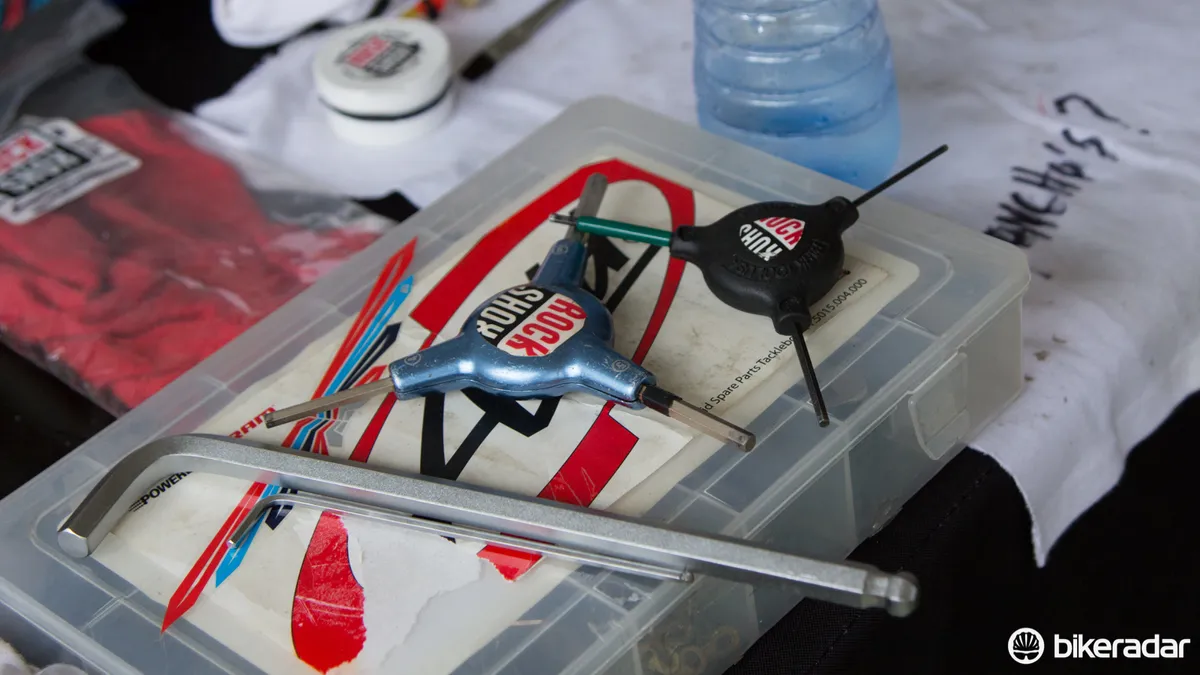So you're a mountain biker (or own a mountain bike), you ride trails on the weekend and don't get your bike seen to as nearly as you should. Here's a list of basic tools that all mountain bikers should own at home to get them through the most common of repairs, maintenance and to get the best experience when out riding. This isn't an exhaustive list of things to carry on the trail, though – that's already been done.
1. Allen keys (AKA hex wrenches)
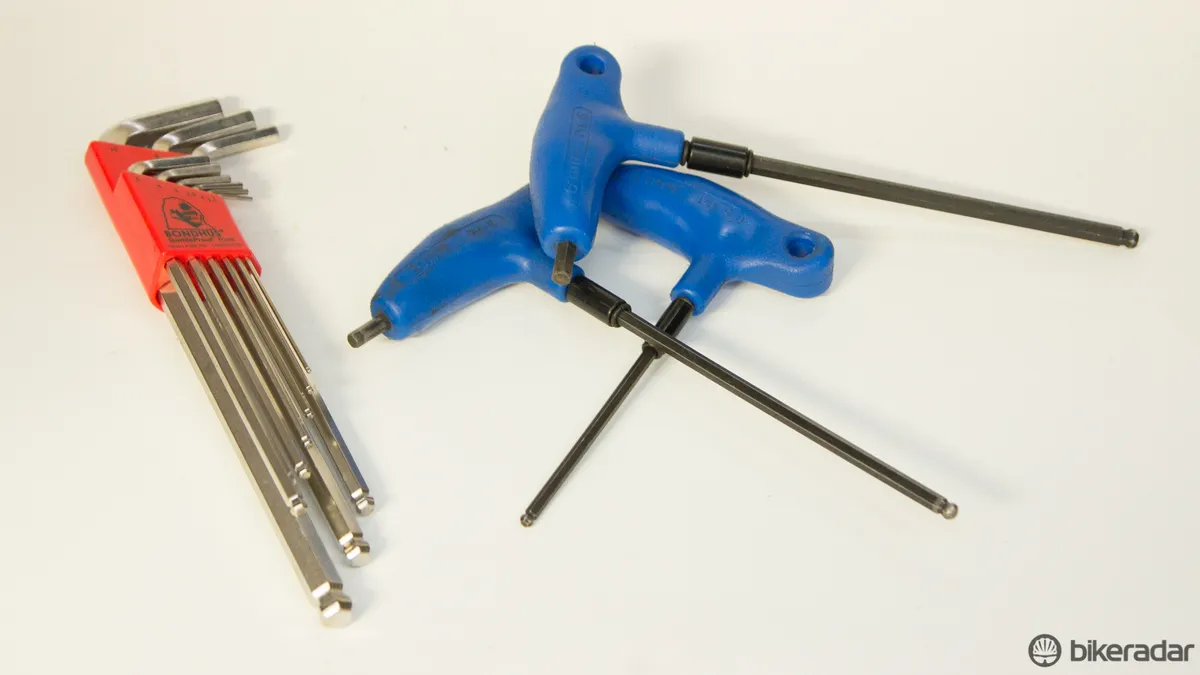
When it comes to fixing bikes, there are Allen keys and then everything else. With these you'll be able to get through most things. Remember, just like bikes, not all tools are created equal: get a good set and look after them, because cheap tools can do more harm than good.
I personally keep a selection at hand, with my chosen combo being a set of Park Tool P-handle and three-way keys as well as a standard set of L-shaped keys from Bondhus for tight access areas.
2. Torx keys
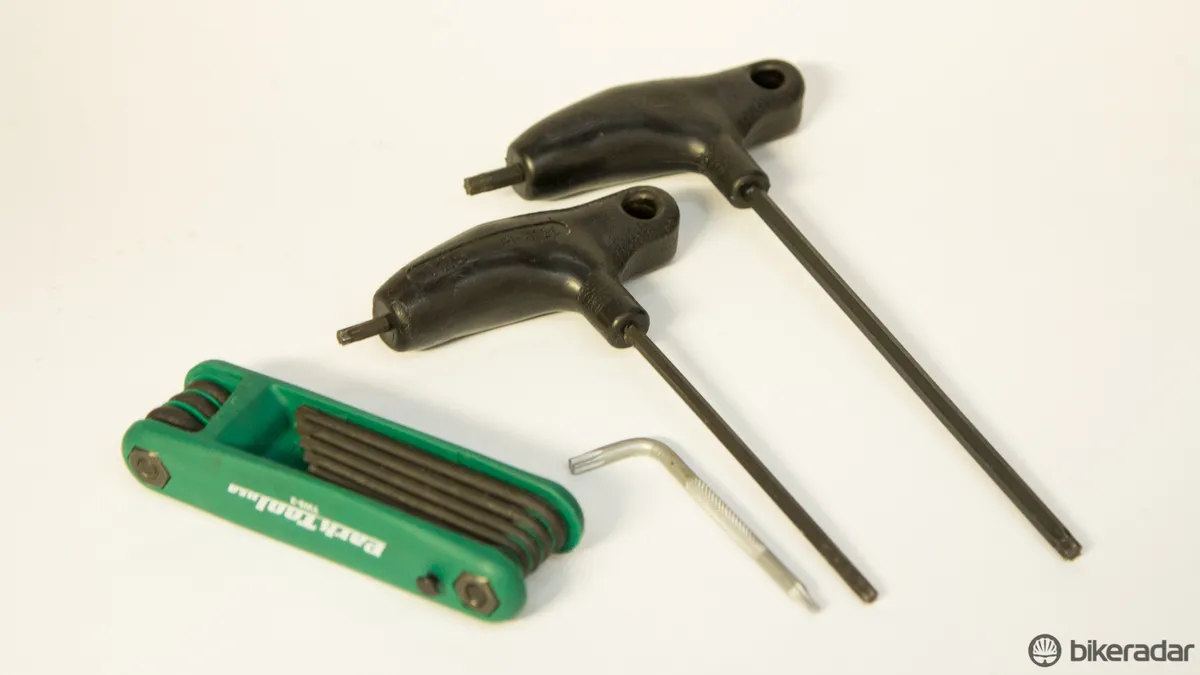
These are becoming more common, and are replacing the use of Allen keys where needed. Get some decent ones and spare your knuckles — the little ones included with your brakes can be painful. Common sizes are T10, T25 and T30. A set from Bondhus will do the job perfectly without spending a fortune, but options from Pedro's and Park Tool are also well worth a look.
3. Chain cleaner (or brush and bucket)
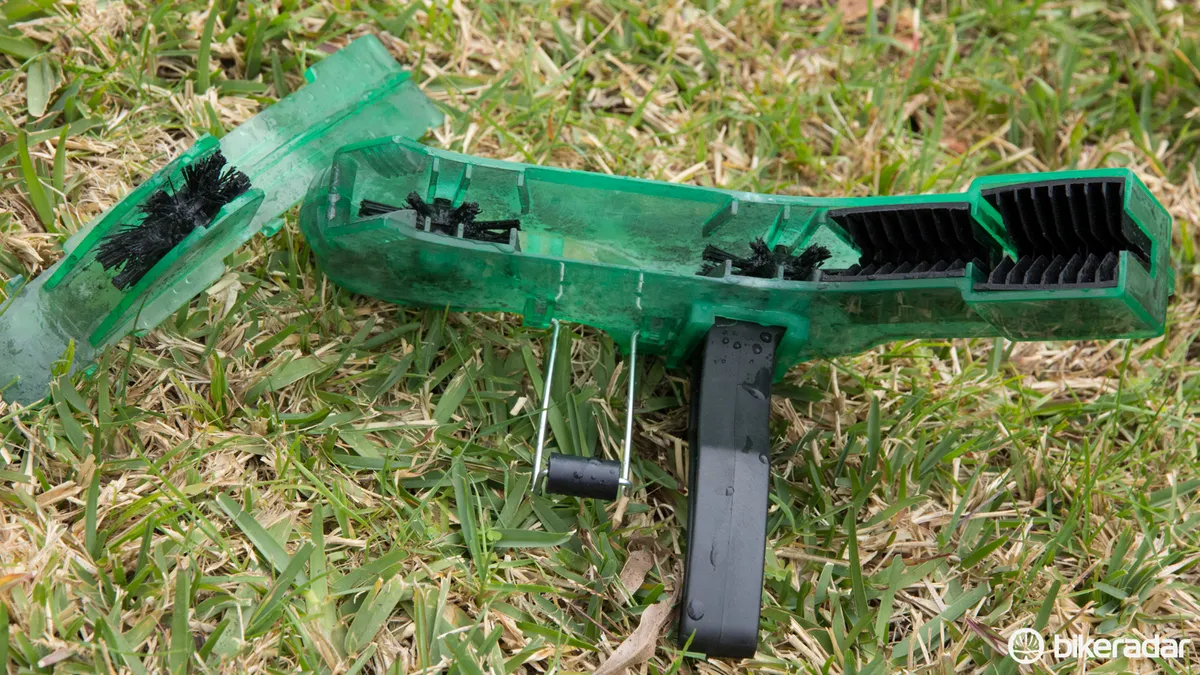
The best pro riders get their bikes cleaned after every ride. A clean bike will always outlast a dirty one. Get into the routine of regularly wiping down your chain before re-applying lube. Dirty/muddy rides should be followed with a proper chain clean before re-lubing. You'll be amazed at the long term durability you get from your chainrings, cassette and chain if you keep them clean and lightly lubed.
For ease of use, the simple clamp-on chain cleaners from Park Tool, Finish Line, Muc-Off and others allow you to keep the chain on the bike and avoid mess.
4. Chain checker
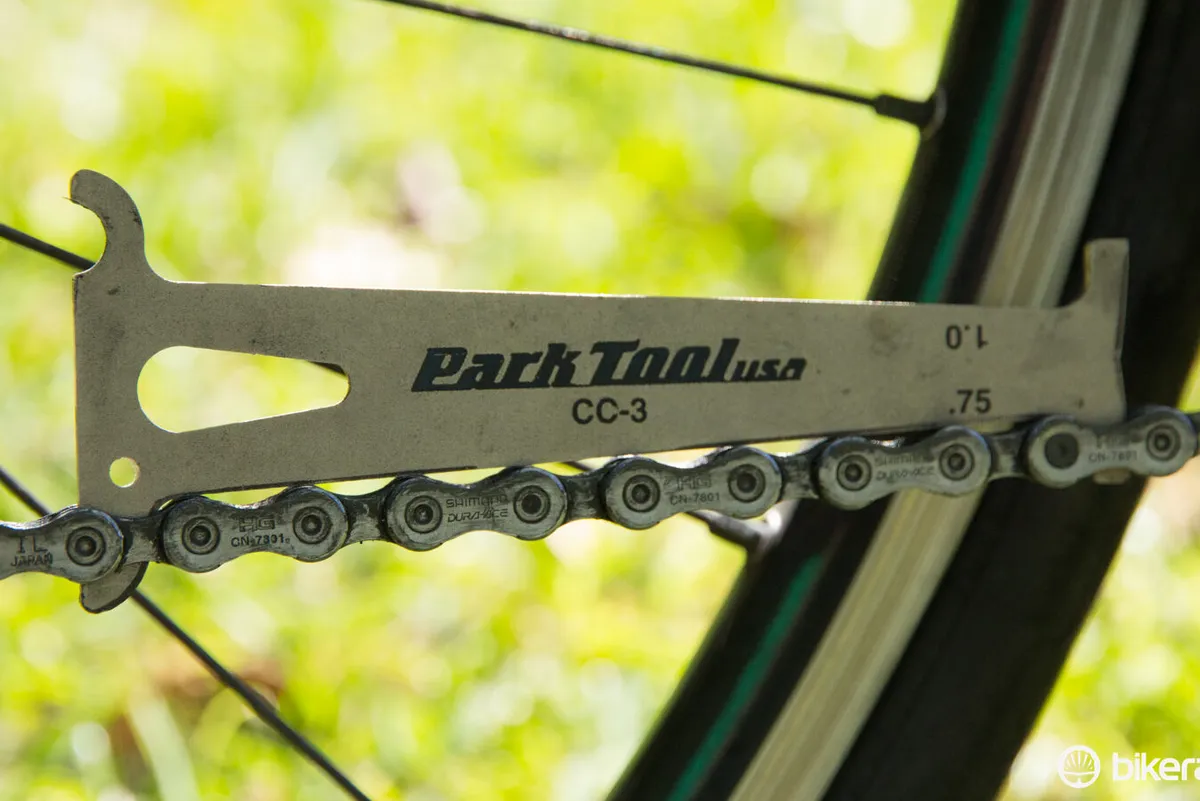
Following keeping your chain clean, it’s good to know when your chain is becoming worn. Replacing a chain before it ‘stretches’ means you can continue using your current chainrings and cogs, in the long-run saving you from having to prematurely replace these more expensive parts.
A chain checker simply measures the inside distance between the rollers of the chain and gives you guidance on when its due for replacement. The simple drop-in style gauges from Park Tool, KMC and ProGold, are straightforward to use and cheap to buy.
5. Shock pump
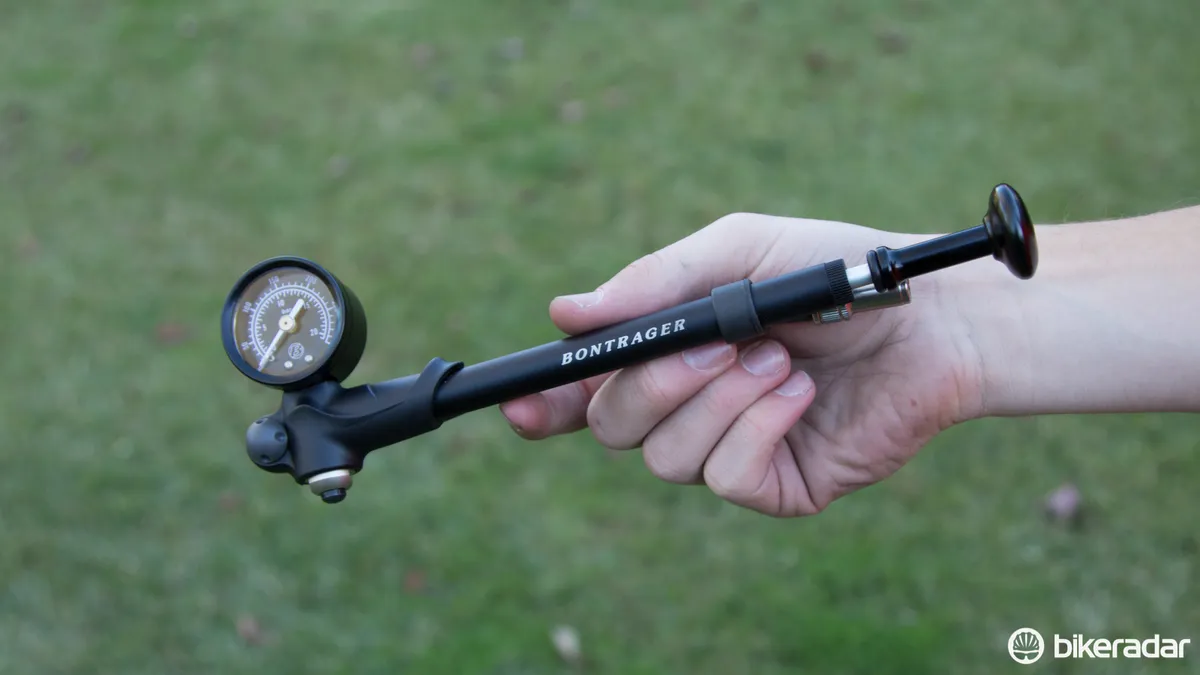
Most decent mountain bikes will have air suspension on at least the front fork. To adjust this, you’ll need a shock pump that allows for incredibly high pressure with minimal output volume. A shock pump with a max pressure of 300psi will suffice for most, but some bikes, such as older ones from Scott, will benefit from a pump with a max pressure of 400psi.

6. Accurate floor pump or pressure gauge
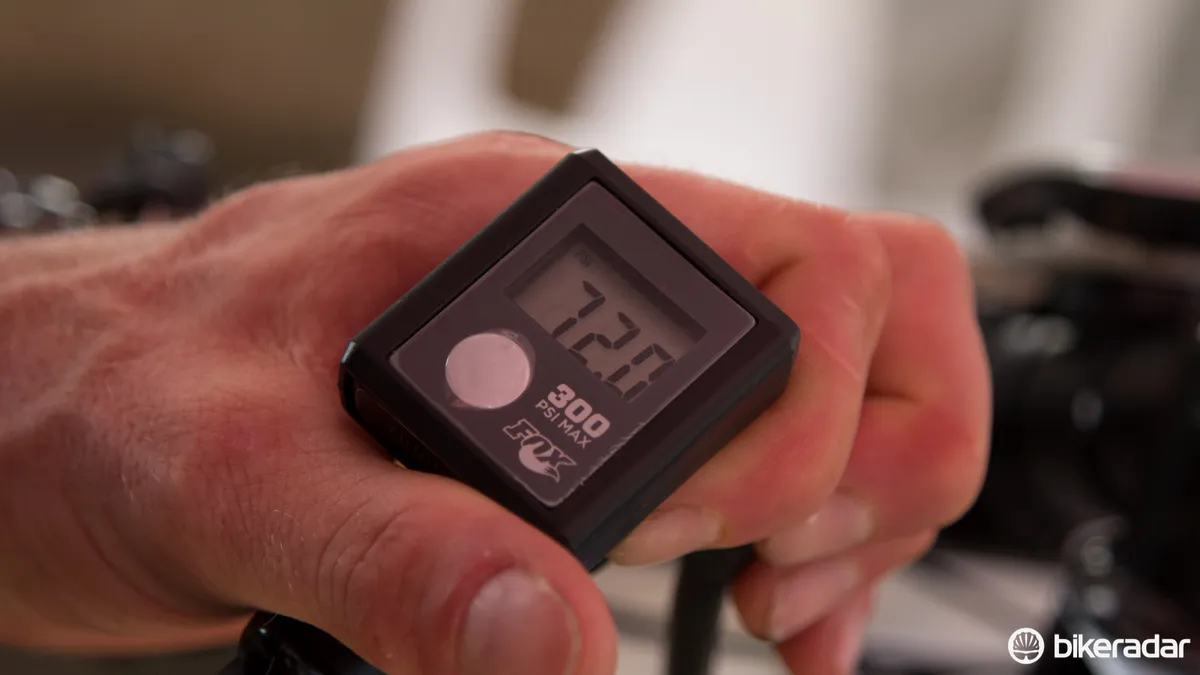
It’s been said before, but tyre pressure is one of the most critical aspects to how your bike behaves when off-road. Too little and you risk blowing a tyre; too much and you risk a nervous ride and a good chance of hitting the ground.
It’s important to play with your tyre pressures and see what works for you, and an accurate gauge is your only way to keep that consistency. A digital pressure gauge can be had cheaply and will be more accurate than many universal floor pumps.
